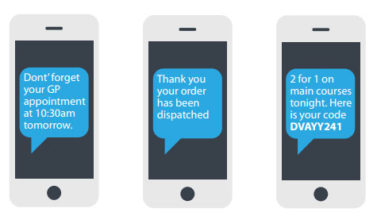
I’m always surprised when a business owner tells me that they don’t have a business strategy or plan in place, especially when they are talking about growing their business. Sometimes, there’s something, but it normally resembles more of a wish list than a plan. They kind of know that they want or need to do something but haven’t really thought through what that means.
The mere mention of drafting up a business strategy seems to scare people, but it needn’t be a scary process.
I coach kids rugby union and find myself increasingly making comparisons between business and sports coaching when talking to people. Basically, I like to explain things as simply as I can, I don’t see the need to over complicate or confuse things. If I take business strategy and liken it to my coaching season, there are many similarities.
I started my last season with my plan for the year; what I wanted to achieve with the kids, where I wanted them to get to and what I needed to do with the kids to achieve that. I review each weekly session as I go along but mid-way through last season I was working out what was generally going well and what wasn’t, looking at things that may need to change for next season – on some occasions things had to change along the way. The same principles apply in business!
Yes, later on, a business strategy may become more complex as more gets added in, but if you start with the basics, and build, you can’t go far wrong.
So, put very simplistically if you consider the 5 following points, you should be well on your way to putting together and implementing an initial business strategy.
1. Start at the end
Work out what your end goal is; know where you want to get to and why. The why is critical to your success. If you don’t know why you’re doing something, you won’t know what success looks like or what comes next. Now, you will probably have a massive goal that you’ll need to split down into a number of smaller chunks and you may also need separate Sales or Marketing strategies, but you will have a starting point. When working out all parts of the plan, the same principles will apply – start at the and and work back. Don’t forget to closely cross reference each as ultimately, any Marketing and Sales strategies must fit well together and also with your overall business plans if you are to succeed.
2. What are your milestones?
Depending on your business goals, there may be certain milestones along the way that need to be met to allow you to succeed. You need to work out what they are, what the impact will be if they are not met and what your next steps will be. Most importantly, make sure you have a way of regularly measuring progress against those milestones. If you are planning to launch a new service at the end of January, it’s no good leaving it until the middle of January to check if everything is going to plan.
3. Know your capabilities
Just because you are the business owner, MD or CEO, that doesn’t mean you have to know how to do everything in your business in detail. Yes, you’ll have to have an overview of everything that’s going on, but you can’t and shouldn’t be doing everything. Know where your time (and the cost benefits of your time and knowledge) is best spent. Delegate to staff and if you don’t have staff with the expertise in a particular area (quite common in smaller businesses), be prepared to outsource it, you may well find it could save you time and money in the long run. If outsourcing, make sure you do your research on the company or companies you plan to use. A little time spent upfront making sure you have the right agency will prevent problems further down the line.
4. Be prepared to change
Best laid plans and all that! You never know when something may happen that will have an impact on what you’re doing. It may be something outside of your control that requires you to change direction completely or even stop something. It could be that a strategy or campaign isn’t going as well as you’d hoped. When it comes to marketing or sales campaigns, make sure you regularly measure the results. This will allow you to make tweaks and changes as you go along.
5. Don’t be afraid to ask for help
There are many business owners and CEOs that find they get so wrapped up in their business, they don’t have time to work on the business. If you’ve got a business strategy but find you’ve lost direction a little, sometimes working with a business coach for a short period of time or just getting someone in for a few hours can help get you back on track. There are also government schemes out there to help small businesses financially with their business strategies.
Don’t forget to check out our infographic on this blog here
Related Post
Pinterest For Small Business
I’m a small business, why do I need Pinterest? A common question I am asked, the answer...
- September 15, 2014
- By Mandy Baldwin
- Business Growth
Pinterest For Hospitality
Using Pinterest to market your hotel or restaurants? I worked for many years within...
- September 30, 2014
- By Mandy Baldwin
- Business Growth
Hubspot’s Conor Douglas...
Conor Douglas, Hubspot’s International Channel Manger joined the WSI Digital Summit on...
- November 19, 2014
- By Nadine Thomas
- Business Growth
The Business Show 2014
If you’re already in business, wanting to grow your business or just thinking about...
- November 25, 2014
- By Nadine Thomas
- Business Growth
Smaller Businesses can use...
Talking at the WSI Digital Summit today, Jason Palgrave-Jones, Natasha Deaffern and...
- July 23, 2015
- By Nadine Thomas
- Business Growth
5 Key Ways to Build Brand...
Social media platforms and networks continue to evolve and grow in popularity. In...
- December 18, 2015
- By Nadine Thomas
- Business Growth











Leave a Comments